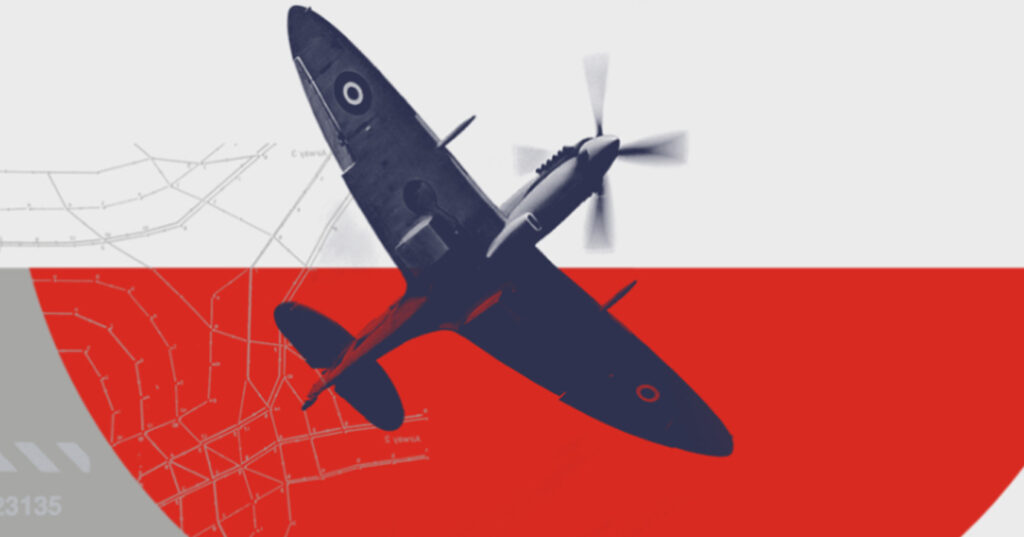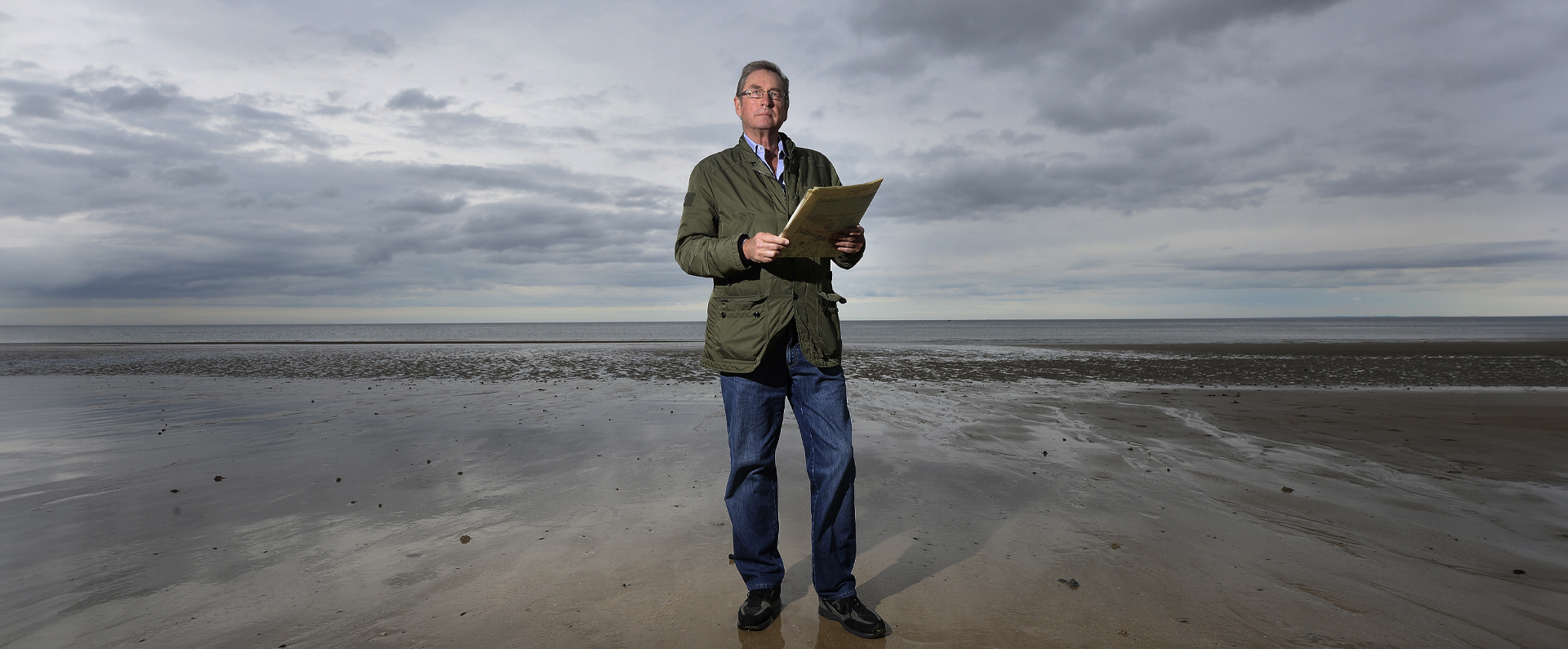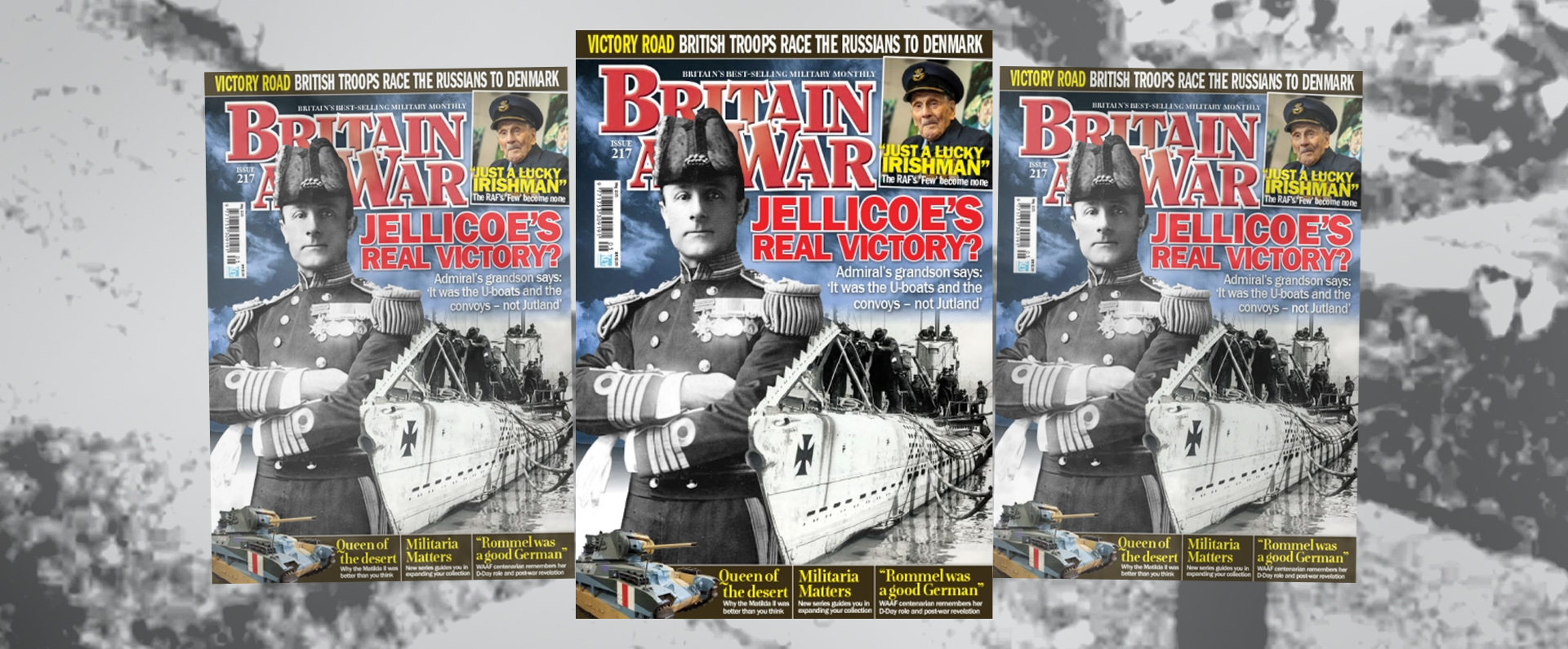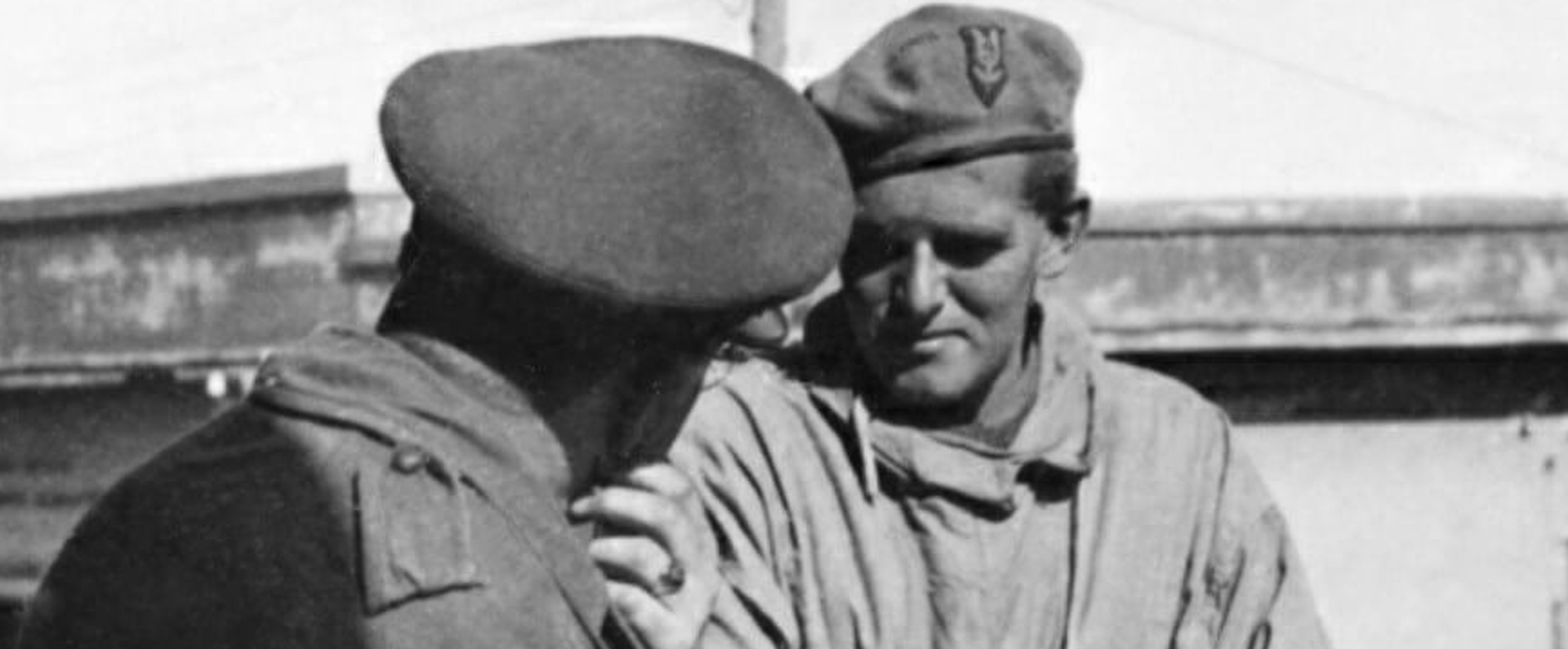
Published in Air Mail magazine in January 2021.
Flight Lieutenant Wilson Hodgson Charlton GC
In January 1941, Flight Lieutenant Wilson Charlton was awarded the George Cross for disposing of more than 200 unexploded bombs – at a rate of more than three every day. But he was too busy to attend his investiture for another five years. On the 80th anniversary of his award, Lord Ashcroft tells Charlton’s story — and how his own fascination with bravery germinated and grew.
In the long and illustrious history of the George Cross (GC), few men have done more to earn the prestigious award than Wilson “Bombs” Charlton. Not only did he deal with an estimated 200 unexploded bombs in just two months but, after his GC was announced, he also showed great courage as a prisoner of war.
The son of a chemist, Wilson Hodgson Charlton, was born on 9 April 1907 in Lanchester, County Durham. He was the elder son of Matthew and Catherine Hodgson, who had been married the previous year and the couple also went on to have two daughters. As a baby of less than a month old, Wilson was baptized at St Peter’s Church, Sacriston, County Durham, on 8 May 1907. Charlton joined the RAF in 1925, aged just 18. After training in the Armament Branch, he underwent a pilot’s course and later joined 25 Fighter Squadron based at Hawkinge, Kent.
In 1932, while based at RAF Worthy Down in Hampshire, Charlton married Alice Walter. The ceremony took place at Christ Church, Folkestone, Kent, and the couple went on to have a daughter, Sheila Marion, who was born on 7 September 1938.
In 1934, Charlton had attended a senior armament instructors’ course at Eastchurch, Kent, and an anti-gas course at Porton, Wiltshire. After the outbreak of the Second World War in September 1939, he was chosen for special duty bomb disposal work.
Incredibly, during September and October 1940, at the start of the Blitz, Charlton dealt with some 200 unexploded bombs at an average of more than three bombs every day. It was hazardous and challenging work carried out around the clock in Gloucestershire and Wiltshire.
The GC was instituted by George VI on 24 September 1940 specifically for men such as Charlton. Always intended to be on a par with the Victoria Cross (VC), the GC was awarded “for acts of the greatest heroism or for most conspicuous courage in circumstances of extreme danger” that were not in the presence of the enemy.
Unsurprisingly, considering his relentless bravery, Charlton was one of the earliest recipients of the GC. His award was announced in The London Gazette on 21 January 1941 when his citation stated:
“Flight Lieutenant Charlton is responsible for all work in connection with enemy bombs in an area comprising the greater part of two counties. Both by day and night, during recent months, he has dealt with some 200 unexploded bombs. He has successfully undertaken many dangerous missions with undaunted and unfailing courage.”
Given the quantity and quality of dangerous devices that he tackled, Charlton was given the nickname ‘Bombs’. However, in the months after his GC was announced, he was too busy to attend his investiture.
In March 1941, he left for a Far East posting in Singapore, where his first task was to travel to China to study Japanese bombs and mines, with a view to learn how best to defuse them.
Some of his contemporaries were in no doubt of the value of his expert work. Major Arthur Hogben wrote:
“Charlton was able to organise an extremely successful visit to the interior of China. He brought back with him a wide range of bomb fuzes removed from unexploded Japanese bombs. He was also able to arrange for a number of Japanese bombs to be delivered to Singapore.”
Charlton moved on to Java where he was responsible for organising bomb disposal squads. However, in 1942 he was captured by the enemy, in circumstances that are not clear. He was then held as a PoW in Java from 1942 to 1945. Given the brutal treatment of the Japanese to its PoWs, Charlton did well to survive his three years in captivity.
At one point, however, Charlton and 12 others managed to escape and they lived in the jungle for four months before being recaptured. At the end of the Second World War in 1945 he was released and, eventually, reunited with his wife and daughter.
Charlton finally received his GC from George VI in an investiture at Buckingham Palace on 11 December 1945. The event took place more than five years after the actions for which he had been awarded the GC.
Charlton remained in the RAF after the war and, in 1946, he was promoted to temporary squadron leader, working from 1946 to 1948 at Command Bomb Disposal (UK), 5134 Squadron. From 1948 to 1950, he worked as an armament officer with 22 Group.
He was invalided from the RAF, while still in the rank of squadron leader, on 7 October 1952. He and his wife were unable to find somewhere to live, leading to one newspaper headline that read:
“G.C. bomb hero has no home.”
Charlton died in Queen Mary’s Hospital, Roehampton, Surrey, on 12 May 1953, aged 46. Along with other decorated bomb disposal officers, he is commemorated at RAF Wittering, Cambridgeshire.
I have had a near-lifelong interest in bravery since I was a small boy and my father, Eric, told me of his experiences as a young lieutenant taking part in the D-Day landings on Sword Beach on June 6 1944.
Gradually, my interest in bravery grew and grew. Courage is a truly wonderful quality yet it is so difficult to understand. You can’t accurately measure it, you can’t bottle it and you can’t buy it, yet those who display it are, quite rightly, looked up to by others and are admired by society.
Wiser – and braver – men than me have struggled to comprehend gallantry and what makes some individuals risk – and sometimes lose – their lives for a comrade, for their monarch, for their country or even to help a complete stranger.
The late Brigadier The Right Honourable Sir John ‘Jackie’ Smyth, Baronet, VC, MC, was the founder, first chairman, and, later, the President of the Victoria Cross and George Cross Association.
With typical wisdom, he once wrote:
“Who can say whether it takes more courage to attack an angry bull elephant with a spear, than to disarm a very sensitive mine, or to have your toenails pulled out and still disclose nothing, or to dive into a burning aircraft to try to pull out members of the crew when the rescuer was well aware that the plane was carrying bombs which might explode at any moment.”
I have an admiration for spur of the moment courage, perhaps when a soldier runs into no-man’s land to rescue a wounded friend even though he is aware he might be shot.
Yet, I have an even bigger respect for what I call ‘cold’, or premeditated, courage as displayed by the likes of Squadron Leader Wilson ‘Bombs’ Charlton. Time and again, these bomb disposal experts are sent to deal with suspect devices that will kill or maim if they make the wrong call.
In 2012, to my delight, I was invited by the Felix Fund, a charity that I support, to join Improvised Explosive Device Disposal (IEDD) operators on a training day at a disused quarry in deepest Somerset.
Under grey skies and in driving rain, I was given a fascinating insight into the work of the eight-strong team of volunteers from 11 EOD (Explosive Ordnance Disposal) Regiment.
I soon realised that black humour was the order of the day: these were men who had seen or heard about their friends and comrades being blown to pieces in theatres such as Afghanistan and Iraq.
Warrant Officer Tony Kelly, then aged 38, and already a veteran of two decades in trouble-spots, told me he preferred to defuse large rather than small devices. He explained that if one of the former detonates “you are not going to feel a thing” (in death) but if one of the latter goes off, you are likely to wake up in hospital minus one or more limbs.
Long ago I decided that even if I, and others, cannot fully understand bravery, we should nevertheless embrace it, treasure it and champion it. Over the years my passion for courage transformed itself into one for gallantry medals. Such decorations, many awarded posthumously, are the tangible record of an individual’s service and courage.
Shortly after my 40th birthday in 1986, I bought a VC that I intended as a one-off purchase. Soon I became determined to build a collection. Today it amounts to more than 200 VCs and 30 GCs, all of which are on display at the Lord Ashcroft Gallery at the Imperial War Museum, along with VCs and GCs that were already in the care of the museum.
I am delighted to say that this collection includes the medal group awarded to Wing Commander Wilson ‘Bombs’ Charlton George Cross, which I purchased at auction in December 2012.
I feel immensely privileged to be the custodian of the gallantry and service medals of a man who has every right to be regarded as ‘the bravest of the brave’.
Read this article in Air Mail magazine
For more information, visit:
LordAshcroftOnBravery.com


